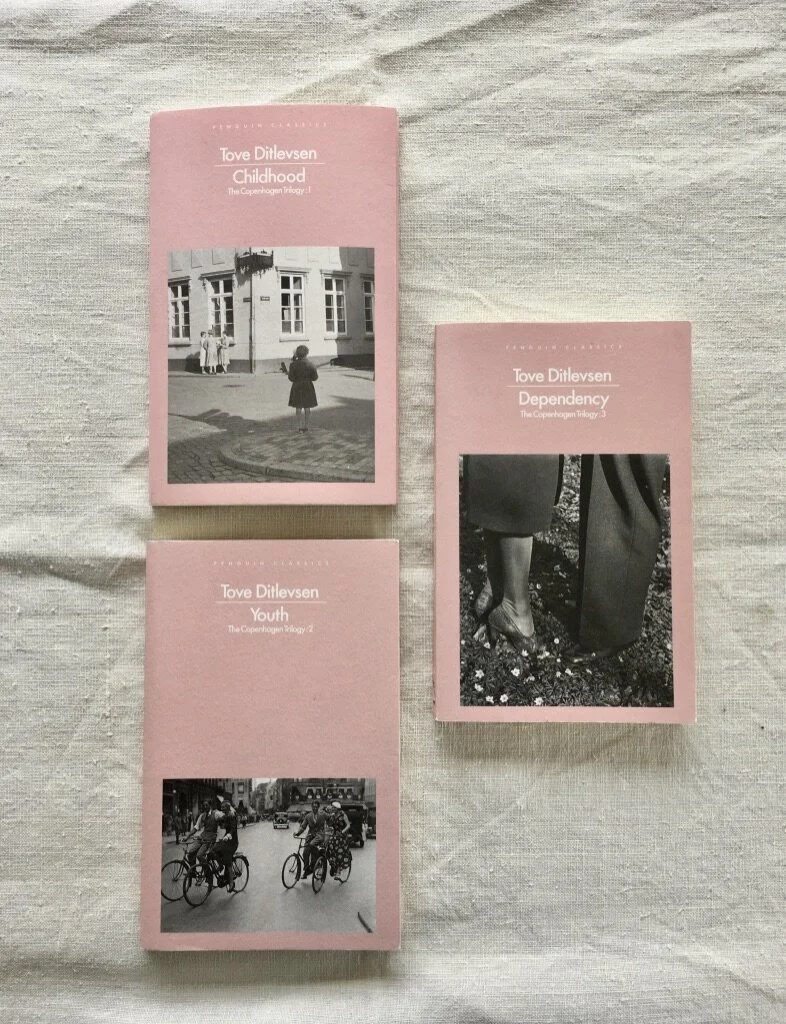The Copenhagen Trilogy by Tove Ditlevsen
Written by Ellie Evelyn Orrell
“In the morning there was hope. It sat like a fleeting gleam of light in my mother’s smooth black hair that I never dared touch; it lay on my tongue with the sugar and the lukewarm oatmeal I was slowly eating while I looked at my mother’s slender, folded hands that lay motionless on the newspaper, on top of the reports of Spanish flu and the Treaty of Versailles.”
Once in a while, you open a book and become completely immersed in it. Allowing yourself to sink into the pages over the space of a few days and then, upon re-emerging, the world feels changed – as though your perspective has shifted ever-so-slightly. Tove Ditlevsen’s memoirs had this exact effect.
Set between the 1920s–70s in Copenhagen, the trilogy illustrates the life of one of Denmark’s most famous twentieth century authors. Poetic in their composition, the books blur the boundaries of truth; through her decision to begin the memoir in the very depths of childhood, eventually leading up to her present day, Ditlevsen illuminates the intersections of memory and lived experience.
The first book, with its imaginative wide-eyed observation of the small universe of Ditlevsen’s childhood in working-class Vesterbro, invites the reader into the intimate world of the author’s memory - a tapestry woven from courtyard characters observed from the window of her childhood bedroom and frequent dreams of becoming a published poet. Every room smells of damp, of coffee, or the newsprint of the socialist newspapers which her frequently unemployed father reads before falling asleep on the sofa each night.
Throughout the trilogy, we follow Ditlevsen between rooms. From her childhood bedroom, to her own writer’s study, the rooms which contained her marriages, and finally the hospital wards in which she was treated for drug addiction. In these rooms we are offered a self-portrait of Ditlevsen’s life in devastating clarity. Yet, between the poverty of her childhood, the rejections of her relationships and unyielding drug abuse, there are always glimpses of joy and an ongoing appreciation for small, beautiful moments which permeate through the gloom like the ‘thin, sharp sunshine’ of a morning walking down Vesterbrogade.
Peering up into a scrap of the Copenhagen night sky visible from her bedroom window ledge, the first book is a lyrical expression of hope which leads the reader into a progressively claustrophobic narrative as we follow her life story and witness the effects of poverty, the actions by which she hoped to overcome it and the drug and alcohol addiction of her later years. Ditlevsen’s writing remains sharp and sensitive throughout, offering both hope and devastation on every page.
First published in Denmark between 1967 and 1971 under the titles Barndom, Ungdom, and Gift, in 2019 all three memoirs were translated into English by Tiina Nunnally and Michael Favala Goldman under the titles Childhood, Youth and Dependency and published by Penguin Books.

